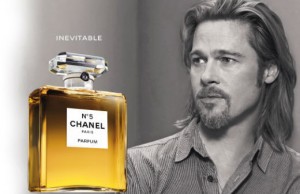We all know Brad Pitt. What do we think while looking at his picture with Chanel No.5 perfume? “Probably, it’s a good perfume,” – you’ll answer. Maybe. But I would say that it’s a perfect celebrity endorsement example. However, is celebrity endorsement always so useful for a company? And how does in influence sales level? We’ll discuss it right now.
People would like to be similar to their idols. For many of us, celebrities, their lives and style are the paradigms of “perfect life”. Thus, if famous Brad Pitt uses Chanel No.5, why shouldn’t other people try it? Will it make them closer to their dream-look? Statistics shows that the answer is “Yes”. At least people think so.
However, what would happen, if unpopular company would choose a celebrity of lower level than our beloved Brad Pitt? Would it change anything? Yes, it would. This might be a situation when the star does not have so many fans and this number wouldn’t compensate amount of anti-fans. Consequently, opponents of the celebrity would do everything to make this product non-demanded and, finally, try to lead it to a failure.
“People want to identify themselves with a certain lifestyle. Often, choosing the right celebrity can invite the right people to buy in and literally un-invite the others,”
– Dr. David Lewis-Hodgson, chairman and director of research for neuro-marketing company Mindlab International
So, it is really important to think twice before spending money on celebrity endorsements. Careful analysis of situation would prevent company from taking a high risk of failure.



Hi Camilla, I remember in my Consumer Behaviour course I learned about a person’s ideal self vs their actual self. The ideal self is what a person aspires to be, while the actual self is what the person is really like.
Many marketers use their target market’s ideal self as a basis for their marketing campaign. A prime example is what you have here – for Brad Pitt fans, they may be more inclined to purchase the Chanel No. 5 just because they look up to Brad and want to be more like him.
I think this concept is very interesting, as marketing campaigns using a target market’s actual self may also be as effective, since we tend to relate more to people who are similar to us. Do you think you as a consumer responds better to campaigns featuring your ideal self, or your actual self? Or do you think it depends on what the product is?